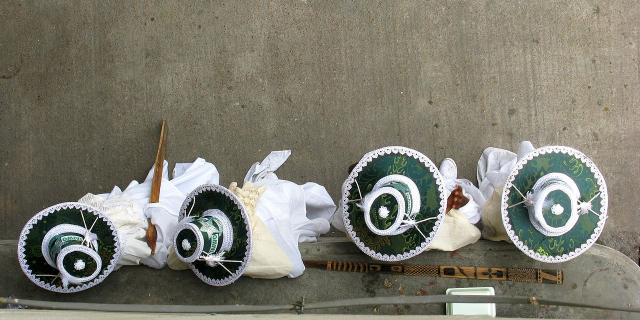Context of Togo
Togo ( (listen)), officially the Togolese Republic (French: République togolaise), is a country in West Africa. It is bordered by Ghana to the west, Benin to the east and Burkina Faso to the north. It extends south to the Gulf of Guinea, where its capital, Lomé, is located. It covers about 57,000 square kilometres (22,000 square miles) with a population of approximately 8 million, and has a width of less than 115 km (71 mi) between Ghana and its eastern neighbor Benin.
From the 11th to the 16th century, tribes entered the region from various directions. From the 16th century to the 18th century, the coastal region was a trading center for Europeans to purchase slaves, earning Togo and the surrounding region the name "The Slave Coast". In 1884, Germany declared a region including a protectorate called Togoland. After World War I, rule over Togo was trans...Read more
Togo ( (listen)), officially the Togolese Republic (French: République togolaise), is a country in West Africa. It is bordered by Ghana to the west, Benin to the east and Burkina Faso to the north. It extends south to the Gulf of Guinea, where its capital, Lomé, is located. It covers about 57,000 square kilometres (22,000 square miles) with a population of approximately 8 million, and has a width of less than 115 km (71 mi) between Ghana and its eastern neighbor Benin.
From the 11th to the 16th century, tribes entered the region from various directions. From the 16th century to the 18th century, the coastal region was a trading center for Europeans to purchase slaves, earning Togo and the surrounding region the name "The Slave Coast". In 1884, Germany declared a region including a protectorate called Togoland. After World War I, rule over Togo was transferred to France. Togo gained its independence from France in 1960. In 1967, Gnassingbé Eyadéma led a successful military coup d'état, after which he became president of an anti-communist, single-party state. In 1993, Eyadéma faced multiparty elections marred by irregularities, and won the presidency three times. At the time of his death, Eyadéma was the "longest-serving leader in modern African history", having been president for 38 years. In 2005, his son Faure Gnassingbé was elected president.
Togo is a tropical, sub-Saharan nation whose economy depends mostly on agriculture. The official language is French, but other languages are spoken, particularly those of the Gbe family. 47.8% of the population adhere to Christianity, making it the largest religion in the country. Togo is a member of the United Nations, African Union, Organisation of Islamic Cooperation, South Atlantic Peace and Cooperation Zone, Francophonie, Commonwealth, and Economic Community of West African States.






















